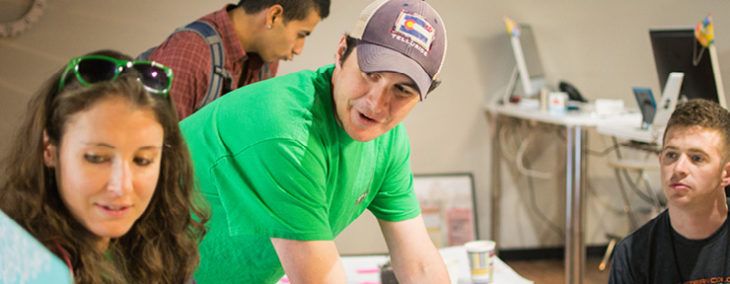Traineeships: a great stepping stone

We were delighted to hear that the government will provide an additional £111 million in 2020-21 for Traineeships in England. Announced by the Chancellor on 8 July 2020, the funding includes a new employer incentive of £1,000 per Trainee, up to a maximum of 10 Trainees, for employers of all sizes. It will also create an additional 30,000 Traineeship places in this year.
We are pleased that the government is committed to improving provision and expanding eligibility for Traineeships, as it could enable more young people to access high quality training.
But there’s more it can do to expand the success of the scheme. We believe that the Department for Education and Education and Skills Funding agency (ESFA) should:
Open up the market place
The expansion of Traineeship procurement is an opportunity to bring in providers with specialisms and experience in supporting diverse cohorts of learners, particularly those from disadvantaged groups who will not be able to access the Kickstart programme or apprenticeships. The ESFA should actively seek new providers to ensure these learners’ needs are met.
Enable flexible work experience
Under the ESFA’s plans, employers must offer Trainees high-quality work experience totalling between 70 and 240 hours. In light of restrictions and barriers to accessing the workplace imposed by Covid-19, the ESFA should consider adapting its Funding Rules to allow for a blended approach, such as virtual work experience delivered in bite sized chunks.
Join up with existing programmes
In our experience, Traineeships can be an exciting and valuable progression route or destination for learners from other programmes. These include learners from European Skills Funding or Job Centre Plus contracts in the community; or young offenders leaving custody after receiving information, advice and guidance (IAG) who could benefit from a more structured programme in order to find a better job or apprenticeship.
Reward enrichment activities
Recent Ofsted post-16 inspection reports have highlighted that enrichment activities including social action, mentoring from employers, support with mental health or substance misuse can improve learner retention and sustainment on vocational training programmes. This is something we have experienced first-hand, with enrichment activities on Forward’s Adult Education Budget (AEB) contracts improving both learner retention and achievement rates by 15%.
Mandate regular IAG and careers advice
As a growing IAG Matrix Standard accredited provider, we know that regular careers advice and IAG reviews must take place during the work placement and work preparation stages in order to prepare learners adequately for employment. Our existing IAG and AEB programmes focus heavily on developing the right work place behaviours, skills and knowledge, as well as great coaching and mentoring from employers.
Encourage positive destinations after Traineeships
So far, the Traineeship programme has been relatively successful in ensuring learners progress towards careers. Its 2019 impact report states that “Trainees had positive outcomes in the 12 months after starting their Traineeship, with 29% beginning an apprenticeship and 57% starting further learning”. But with the programme set to expand, even greater care should be taken to ensure that learners are not left unemployed on completion of their Traineeship. Employers and providers must be encouraged to join up programmes and offer progression routes. For example, participants could move into the Kickstart programme or apprenticeships – providing an appropriate progression while enabling employers to benefit from the apprenticeship levy transfer and incentives.
In July 2020 we launched our new Partners and Employers Network (PEN), for commissioners and employers who are committed to achieving better outcomes for learners and our clients. You can join the network here.
Asi Panditharatna, Divisional Director, Employment Services
The Forward Trust’s Employment Services delivers information, advice and guidance (IAG) services, vocational training, employability, enterprise and apprenticeships.
We also support and develop social enterprises. In 2020 we were awarded the Matrix Standard for IAG services and were a finalist in the ERSA Employability Awards.